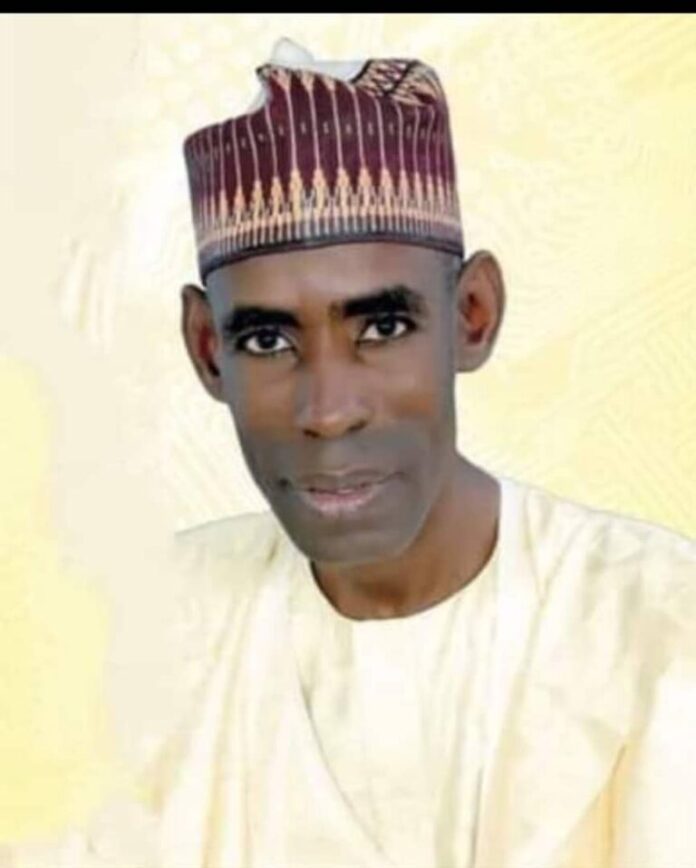Unleashing Verbal Barrages: Kashim Shettima in his element, by Engr. Bello Gwarzo Abdullahi, FNSE
The occasion commemorating the launch of Mohammed Bello Adoke’s memoir, “OPL 245: Inside Story of the $1.3 Billion Nigerian Oil Block,”featured Vice President Kashim Shettima at his eloquent best. He recounted his experiences during the Goodluck Jonathan administration, elucidating the pivotal roles played by Senator Aminu Waziri Tambuwal, Mohammed Bello Adoke, and Kabiru Tanimu Turaki in enlightening the then-President about the constitutional impropriety of a President removing a sitting governor. Shettima’s articulate expression and compelling rhetorical prowess truly shine in verbal discourse, leaving a profound impact on his audience.
The emerging struggle between democracy-loving Nigerians and the ruling party alludes to potential conflicts of interest that necessitate astute management. The strategic alliances and preparedness between the ruling party and opposition could significantly influence the forthcoming elections.
For instance, governors and senators aligning with the opposition could instigate a transformative shift in power dynamics, reshaping the political landscape in unforeseen ways.
President Bola Ahmed Tinubu’s administration confronts formidable challenges due to the suppression of dissent and the pervasive corruption entrenched within the executive, legislative, and judicial arms of government. A failure to address these pressing issues promptly could precipitate heightened tensions within the ruling party.
The recent defection of Malam Nasir El Rufai and the “resignation”of Dr. Abdullahi Umar Ganduje as party Chairman signal a brewing tempest within the APC. This is further exacerbated by the adoption of the African Democratic Congress by the coalition to challenge the ruling party in 2027.
The political landscape in Nigeria is undergoing profound transformations, reminiscent of historical shifts in power dynamics. The elite’s influence on political outcomes is unequivocal, shaping the nation’s destiny for years to come. As alliances are forged and power struggles intensify, the future of Nigerian politics remains uncertain, with the actions of the elite playing a pivotal role in determining the course of events.
The intricate web of political alliances and power dynamics in Nigeria continues to evolve, presenting a complex tableau for both politicians and citizens alike. As the impending elections draw near, the significance of grassroots movements and civic engagement cannot be underestimated. Grassroots organizations possess the potential to mobilize communities, amplify voices, and hold political leaders accountable for their actions.
Moreover, the imperative for transparency and accountability within the government remains paramount. Citizens are demanding more from their elected officials, advocating for reforms that prioritize the well-being of the nation over individual interests. The ongoing struggle between traditional power structures and the voices of the populace underscores the necessity of a vibrant and participatory democracy.
I firmly believe that Vice President Shettima’s speech will undoubtedly influence the strategic calculations of both the ruling party and the opposition. Indeed, the speech presents the ruling party with a catch-22 scenario.
READ ALSO: Is the political slaughter house on the horizon?, by Engr. Bello Gwarzo Abdullahi, FNSE
What remains to be seen is how both factions will navigate this predicament. Nevertheless, the address stands as a bold assertion that no entity possesses a monopoly on intimidation, and that truth will invariably triumph over falsehood.
Leaders must rise to the occasion, and followers must remain vigilant. The timing is particularly opportune, considering the growing tide of opposition to our descent into a one-party state.
bgabdullahi@gmail.com
Follow the Neptune Prime channel on WhatsApp:
Do you have breaking news, interview request, opinion, suggestion, or want your event covered? Email us at neptuneprime2233@gmail.com





